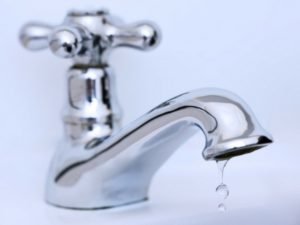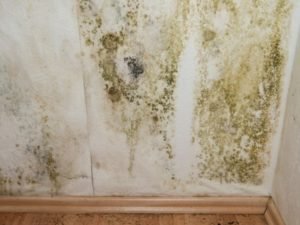A water leak (even a small one) can create a great deal of costly damage in your home. It can seem a little overwhelming, especially if you don’t know what you are looking for.
Obviously, if you see evidence of rushing or pooling water, you’ll be compelled to jump into action. But what if you’ve got a leak that you don’t necessarily know is there? The potential for damage still exists.
We’ve put together some tips to help you proactively protect against damage from water leaks.
Preventative Maintenance to Minimize Damage
Your plumbing fixtures are often to blame for water leaks. One major culprit is a faulty flapper on your toilet.
A leak like this can cause a great deal of moisture to accumulate and damage the floor under your toilet. To test, drop a dye tablet in the toilet tank.
If the color seeps into the bowl, check to see if your flapper needs to be changed (the seal is probably broken).
Pay attention to faucets and clean out aerators regularly.
Inspect your piping located under sinks for moisture or pooling water.
Don’t forget washing machine hoses. For extra protection, put your washing machine on top of a drip tray, which will catch water in the event of a leak
Is There a Leak in Your Foundation?
As far as leaks go, having a leak in your home’s foundation can be a major headache. Typically, a leak in your foundation is caused by piping that runs through your floor or often is the sewer line itself.
Not only are these types of leaks difficult to diagnose for the untrained eye, given that these pipes are located within your foundation, but you also need professional help that you can count on.
How do you know if you’ve got a foundation leak? You may notice hot or cold spots on the floor, where hot or cold water is leaking. It’s common to hear water rushing through the floor, even when things are switched off.
Another flag is an increase in your water bills.
Harder to find leaks in the concrete slab that your home sits upon require special equipment that lets the technician listen for the source of the leak.
Don’t Underestimate Potential Damage from Water
What can water do to your home? To start, if you’ve got a leak somewhere, you are wasting lots of water, which is going to drive up your water bills.
When that leaking water comes in contact with your drywall or other structures in your home, it can cause extensive damage, which is very costly to fix.
 Leaks can also cause mold to grow.
Leaks can also cause mold to grow.
Mold is one of the more serious byproducts of leaks, and should not be taken lightly.
Inhaling mold spores is dangerous and can make you very ill. Do not put yourself, your family, or your pets in that situation.
It’s well worth your while to try to stop leaks before they start.
